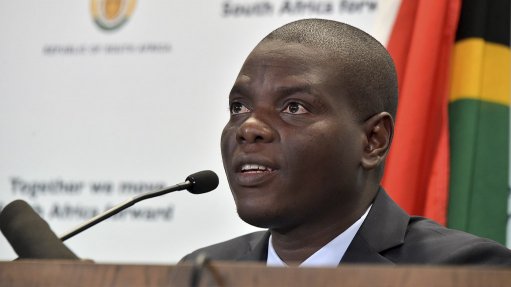
Minister of Justice and Correctional Services Ronald Lamola
The Police and Prisons Civil Rights Union (POPCRU) is concerned about the followed processes in granting parole to former Colonel Chris Lodewyk, who had in 2016 been sentenced to a jail term of 18 years on more than 20 of charges racketeering, corruption and money laundering wherein R9 million worth of lethal weapons were given to gangsters.
We find this baseless decision by the parole board appalling, considering that as a former senior within the South African Police Service (SAPS), Mr Prinsloo was supposed to have exercised the highest form of discipline in keeping up with the SASP’s code of conduct. He can therefore not be rewarded for his disgraceful actions.
Beyond this, any inmate needs to serve at least two-thirds of their sentence before they are considered for parole.
Such a decision is a slap in the face to the many people who have perished at the hands of gangsters, their families and to those committed police officers who have been killed while investigating these syndicates.
He clearly understood that his dealings would result in the many community deaths and turf wars that continue to ravage parts of the Western Cape areas, destroying future aspects for the many youth growing up under such gang-ridden environments.
Gangsterism has been a major cause of contact crime in our country, and out of 63 gang-related murders, 59 were in the Western Cape.
His actions have further undermined the efforts towards building confidence among communities and their relations with law enforcement agencies as it relates to building accountability and transparency.
Such a decision is smack in the face towards building confidence among our communities that the law enforcement agencies are committed to promoting accountability and transparency.
Mr Prinsloo should not get any preferential treatment, and must be taken back to jail to serve out the two-third of his sentence before being considered for parole.
The Minister of Justice and Correctional Services Ronald Lamola and the Parole Board must account for this made decision.
Issued by POPCRU